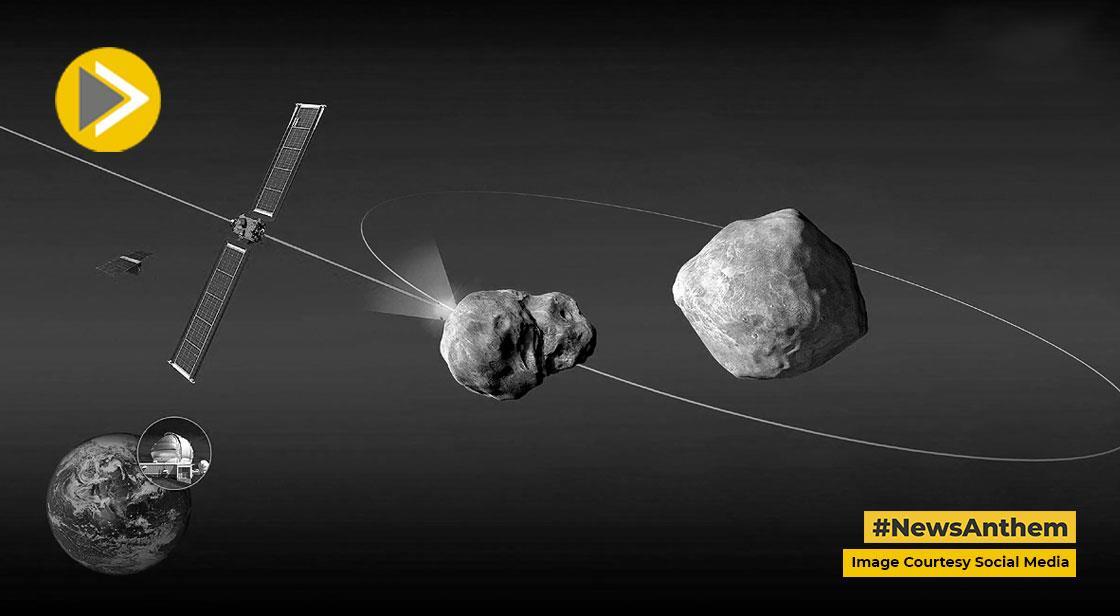Japan's Space Debris Firm Astroscale Partners with India's Digantara and Bellatrix Aerospace

News Synopsis
Japan’s Astroscale, a company specializing in space debris removal, has announced a collaboration with Bengaluru-based space startups Digantara and Bellatrix Aerospace. This partnership aims to enhance space sustainability by offering innovative orbital services. The move marks Astroscale’s first venture into the Asia-Pacific region outside Japan and is expected to materialize into commercial services in India within the next one to two years.
India: A Key Market for Space Debris Solutions
Eddie Kato, President of Astroscale Japan, emphasized India’s growing prominence as a space market. He noted that India’s space sector is undergoing rapid liberalization, fostering commercial growth and strengthening ties with global space leaders, particularly the United States. This evolving ecosystem makes India an attractive market for Astroscale’s on-orbit servicing technology.
Scope of Collaboration with Digantara and Bellatrix Aerospace
The collaboration between Astroscale, Digantara, and Bellatrix Aerospace will focus on space debris monitoring and satellite servicing. Digantara specializes in space situational awareness (SSA) and provides tracking solutions for orbital objects. The company has already secured contracts with multiple U.S. defense agencies. Meanwhile, Bellatrix Aerospace is known for its advanced satellite propulsion systems, essential for orbital maneuvering and debris mitigation.
Expanding Space Operations in India
Astroscale aims to introduce its orbital debris removal services to Indian government clients as the first step in its market expansion. With India allowing private-sector participation in space activities and establishing a ₹10 billion ($116 million) fund to support space startups, the partnership is expected to unlock new business opportunities.
Shreyas Mirji, Vice President of Digantara, highlighted that this collaboration will strengthen India’s space situational awareness capabilities and open doors to emerging space markets. Similarly, Bellatrix Aerospace CEO Rohan M. Ganapathy stated that the partnership is a milestone in Bellatrix’s global expansion, particularly in the Japanese market.
Astroscale’s Global Space Debris Initiatives
Beyond India, Astroscale is actively working with Japan Aerospace Exploration Agency (JAXA) on a commercial debris removal mission scheduled for 2027. The company has also secured contracts with the U.S. Space Force and space agencies in the UK and France to provide satellite servicing solutions. These initiatives are crucial as satellite congestion in Earth’s orbit is estimated to pose over $500 million in risks within the next five years.
Growing Japan-India Space Collaborations
The agreement between Astroscale, Digantara, and Bellatrix Aerospace is part of a larger trend of increased cooperation between Japanese and Indian space firms. Other notable collaborations include:
-
Moon exploration partnership between Japan’s ispace and India’s Skyroot Aerospace.
-
Joint efforts between SKY Perfect JSAT-affiliated Orbital Lasers and InspeCity, an Indian robotics firm.
Government-Level Space Dialogues
Further strengthening their ties, the Indian and Japanese governments are set to conduct their third round of space dialogue policy discussions in Tokyo. These talks aim to enhance bilateral space cooperation in areas such as satellite development, deep-space exploration, and orbital debris mitigation.
Conclusion: Paving the Way for a Cleaner Space Environment
The collaboration between Astroscale, Digantara, and Bellatrix Aerospace marks a crucial step toward tackling the growing challenge of space debris. With India’s space sector opening up for commercial ventures and international partnerships, this alliance is expected to bring cutting-edge solutions to orbital sustainability while creating new opportunities in the global space economy.
You May Like









